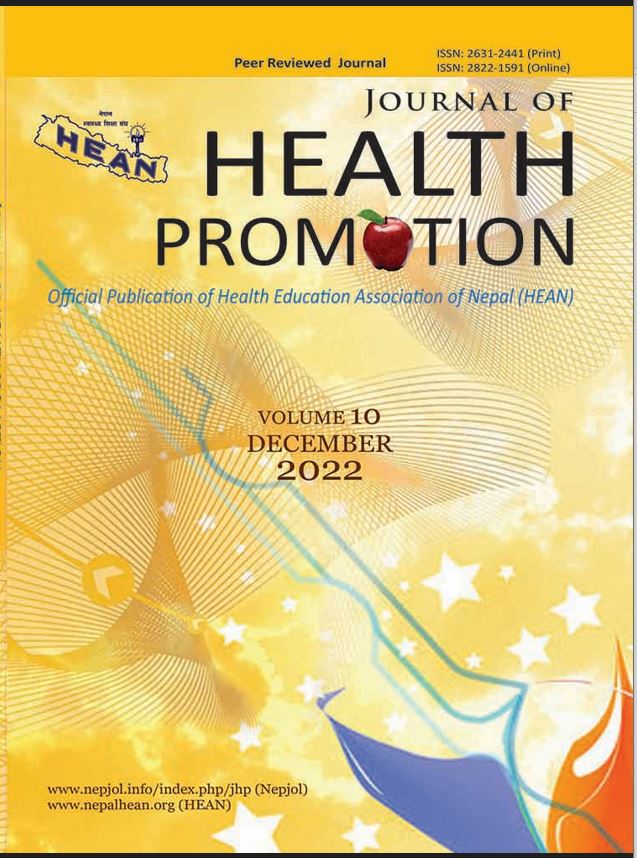Assessing the effectiveness of a menstrual hygiene management and sexual and reproductive health education program in post-earthquake Nepal
DOI:
https://doi.org/10.3126/jhp.v10i1.50994Keywords:
adolescent health, health education, Nepal, menstrual hygiene management, menstruation, post-disaster, sexual and reproductive healthAbstract
This study assesses the effectiveness of a menstrual hygiene management (MHM) and sexual and reproductive health (SRH), school-based education program conducted in Dhading, Nepal after the 2015 mega-earthquake. The intervention aimed to improve MHM/SRH knowledge among adolescent girls on a range of topics including adolescence, female anatomy, menstruation, and more. Quantitative data were collected via cross-sectional, self-administered, community-based surveys after the 2015 earthquake with 3,319 adolescent girls in grades 7-9 in Dhading district. Data were collected using the same survey tool before and after the intervention and responses were compared using SAS 9.4. Before the intervention, the median MHM/SRH knowledge score was 50% of the pre-test questions answered correctly. After the intervention, the median MHM/SRH knowledge score improved to 73% of the post-test questions answered correctly. Topics with the greatest percentage improvements between pre- and post-tests included age of menarche (from 20.5% to 60.0%), timing of taking emergency contraceptive pills after unsafe sexual contact (from 14.8% to 54.1%), and approaches for managing menstrual pain (from 42.2% to 77.1%). The school-based MHM/SRH educational intervention led to significant improvements in participant MHM/SRH knowledge. Equipping girls with accurate information about MHM/SRH long before a disaster occurs by embedding the information into the national school curriculum is one way to ensure they are prepared with key information required to manage MHM/SRH needs if another disaster occurs.
Downloads
Downloads
Published
How to Cite
Issue
Section
License
Copyright (c) 2022 Health Education Network (HEAN)

This work is licensed under a Creative Commons Attribution-NonCommercial 4.0 International License.
© Health Education Network (HEAN)
Authors are required to transfer their copyright to the Health Education Association of Nepal (HEAN).
The materials of this publication may be reproduced, reviewed and translated, acknowledging the source "Journal of Health Promotion".




